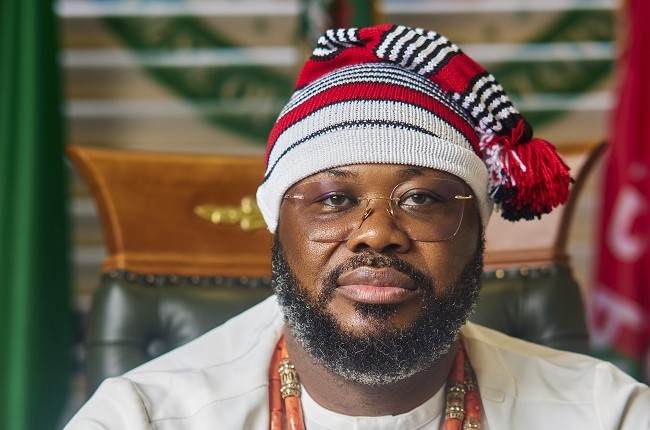On Wednesday, August, 27, 2025, Nigeria’s National Council on Climate Change will bring together stakeholders from across the country to the “National Validation Workshop of Nigeria’s NDC 3.0.” The NDCs, as most of us know are series of national commitments under Article 4.2 of the Paris Agreement on Climate Change, which represent countries’ pathways to climate action.
This is to be reviewed every five years and in line with these important stipulations, Parties to the Paris Agreement, Nigeria inclusive, are expected to develop and summit the third iteration of their national climate commitments known as Nationally Determined Contributions (NDCs 3.0) before the end of this year.

The Paris Agreement is a legally binding international treaty on climate change, adopted in 2015, to limit global warming to well below 2°C, preferably 1.5°C, above pre-industrial levels.
A big commendation must of course go to all involved in the process of the development of Nigeria’s NDCs 3.0 because of the massive effort made to make the process inclusive. There were conscious efforts to engage everyone, even reaching out to subnational leaders to make their submissions.
The importance of this effort at integrating subnational considerations in the development process of the NDCs cannot be overemphasized. This is because the devastation wrought by climate change in the form of destruction of infrastructure, loss of arable land due to land degradation, health challenges, insecurity, etc are ultimately borne by people within communities, local governments and states. In essence, the subnational. They should therefore be critical to this.
This was a point I re-iterated on the 3rd of June when the National Council on Climate Change came to brief my committee – House of Representatives Committee on Climate Change and Security – on our NDCs 3.0 process. I made it clear to them that there was a need to also engage subnational legislators. These legislators have key roles to play. For instance, the draft NDCs 3.0 makes the case for eradication of generator use, support for a switch to clean cook options, etc.
None of these can be implemented at a location called “the federal”. Implementation must be at the subnational, hence subnational legislators have a critical role to play either through lawmaking, or through oversight and appropriation. Not engaging them was therefore a big oversight.
Even though this engagement with the subnational legislators was not carried out, a cursory look at the draft NDCs 3.0 did show an attempt at subnational considerations with the inclusion of certain provisions such as recommendations for ranching, reduction in deforestation, gas flaring, etc. These are key provisions which would impact positively on the subnational, especially on the security, ecological health, and human wellbeing, of the people. This is of course as long as we are able to get to the implementation part and also ensure that the process is just.
So, we must commend them for first making an effort, while also highlighting where they could have done better. The first of where they could have done better was the oversight on inclusion of subnational parliaments which I have mentioned above.
Secondly, it is ironic that the effort at reaching out to subnational leaders failed to pay attention to one thing which the NDCs development process had flagged – lack of capacity on the part of subnational actors. What that means is that based on this lack of capacity, the contributions from the subnational leaders might be flawed and not totally reflective of how best to capture their needs. A better way would have been to carry out a proper professionally-led assessment backed by capacity building sessions.
This becomes more poignant when one considers that while the NDCs 3.0 process detailed specific assessment efforts with focus on just transition; gender, youth and children; the NDC and the SDGs; labour within the context of the transition; migration; biodiversity; and circular economy; there was no specific effort for a detailed assessment of subnational needs and how these can be leveraged to ensure deeper attention on how NDCs 3.0 implementation can address subnational development challenges, climate impacts and the key issue of subnational access to climate finance.
Indeed, with Nigeria’s NDCs 3.0 consciously being aligned with the development plans of the country and its net zero target, there is need to explore ways of mobilising the subnational to drive up private sector investments that will at once address subnational needs, build resilience, and accelerate the country’s climate response and sustainable development.
Thankfully, there is still time to do this since our draft NDCs 3.0 projects the development of an investment strategy for NDCs 3.0. This investment strategy and its implementation strategy counterpart must be designed to pay extra attention to core subnational needs and how to leverage these to unlock vast investments. It might be that the earlier discussed issue of professionally-led assessment can now come in to determine how best to use these tools to position the subnational appropriately in our climate and sustainable development plans.
One thing is certain; climate action is development action and there is no way a multilayered country like Nigeria can attain either without taking into strong consideration subnational foundations. We must always proceed with this mindset.
By Rep. Kama Nkemkanma, Chairman of the House of Representatives Committee on Climate Change and Security
